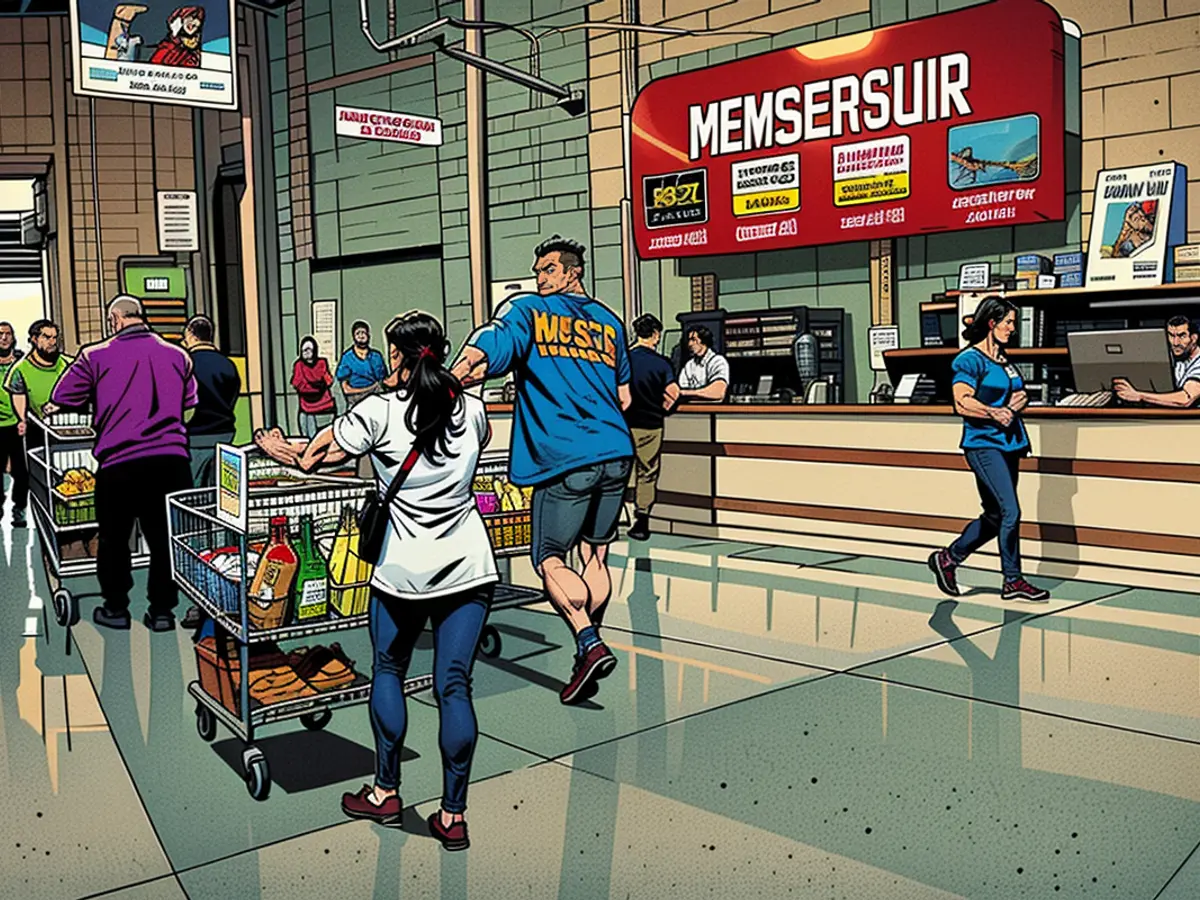US investors are losing heart
Initially, it seemed like US stocks were continuing their recovery at Wall Street. However, traders got cold feet later on, and the US indices closed near their daily lows. Concerns about a potential Iranian strike in the Middle East drove oil prices up.
The Wall Street initially gained profits but ended up weaker. The Dow Jones Industrial Average closed 0.6% lower at 38,763 points on Wednesday. The tech-heavy Nasdaq fell around 1% to 16,195. The broad-based S&P 500 lost 0.8% to 5,199. Earlier, the indices had gained between 1% and 2%.
This was due to temporary gains in recently struggling big-tech companies. Microsoft shares, which had risen as much as 2.6%, ended 0.3% lower. Amazon shares, which had risen as much as 3.5%, managed a small gain of 0.5%. Nvidia turned negative and lost more than 5% after earlier gaining 4.4%. Michael Landsberg, chief investment officer at Landsberg Bennett in Florida, said increased volatility in the sector is likely to persist. "Many investors have big gains in tech stocks, so they're focused on managing risk," he said. Concerns that tech stocks have risen too quickly this year, along with recession fears, were major factors in the recent global market sell-off.
Middle East fears drive oil price
The VIX, the "fear gauge" for US stocks, remained relatively stable at 27.85 points. It had jumped to a four-year high of 65.73 points on Monday. A "calming pill" was administered to global investors by the deputy governor of the Japanese central bank, said strategist Jürgen Molnar of broker RoboMarkets. Shinichi Uchida said the Japanese central bank plans to temporarily avoid higher interest rates amid recent market turbulence. This weakened the Japanese yen, causing the dollar to rise nearly 2% to 146.82 yen. The Nikkei index, which had its biggest drop since Black Monday 1987 on Monday, gained over 1%.
All eyes are now on the next speeches by Fed representatives and economic data to gain more clarity on the short- to medium-term outlook for markets and the US economy, said analyst Pierre Veyret at brokerage firm ActivTrades. Meanwhile, oil markets continued to rise. North Sea Brent and US WTI crude each rose around 2.5% to $78.32 and $75.19 per barrel, respectively. The Middle East is preparing for a potential new wave of attacks by Iran and its allies following the killing of high-ranking members of militant groups Hamas and Hezbollah last week. "Any escalation of the conflict in the Middle East could increase the risk of supply disruptions from the region," said Daniel Hynes, analyst at the Australia and New Zealand Banking Group.
Cybersecurity specialist in demand
Shares of Fortinet, a US cybersecurity specialist and CrowdStrike rival, were in demand among individual stocks. The company's shares surged over 25%. Fortinet raised its annual revenue forecast due to increased spending by companies on cybersecurity protection.
Airbnb got caught under the wheels. The stock of the room broker plummeted by nearly 14 percent. The waning travel enthusiasm of customers, especially in the US, troubled the company in the second quarter.
More on today's trading day can be found here.
The economic uncertainty caused by Middle East tensions drove oil prices higher. The US economy, despite initial stock market gains, saw indices closing near their daily lows.
The potential for increased supply disruptions from the Middle East due to escalating conflicts could have significant implications for the US economy.








